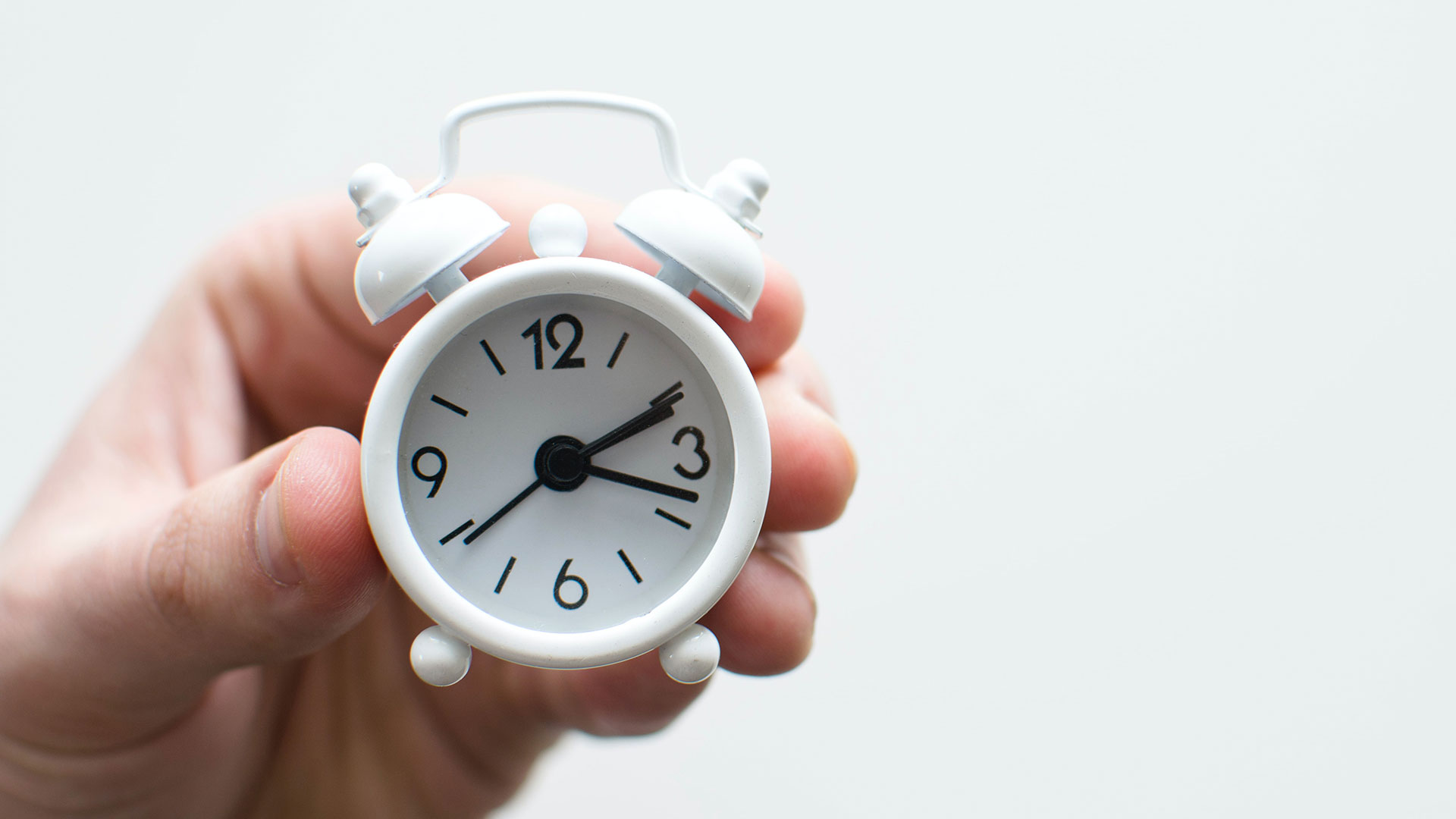5 doctor-approved ways to tackle the UK clock change this weekend
... plus one technique you should definitely avoid


In the UK, the clocks are due to go forwards this weekend (early on Sunday morning, to be precise – the shift happens at 1am on 27 March), which means we're all set to lose an hour of sleep. While I think we can all get on board with the idea of lighter mornings, the prospect of having to wake up a full hour earlier than usual isn't hugely appealing, and it's always a little surprising how much that one hour's shift can mess up your body clock.
There are various hacks designed to help you keep your wake-sleep cycle nicely in balance across Daylight Savings, but not all of them are legit. NHS doctor and Time4Sleep advisor Dr Frankie Jackson-Spence has rated 6 different techniques for tackling the clock change, to see which ones, in her professional opinion, might actually help.
Hack #1. Reduce caffeine intake the day before
Doctor's verdict: useful
Avoiding caffeine in the run-up to bedtime is part of any good sleep routine, but Frankie suggests adjusting your routine on Saturday, in preparation for the clocks change. "On the 26 March in particular, you’ll want to reduce caffeine intake at least an hour before you usually would. This will encourage your body to unwind by bringing forward your pre-bed routine a little,” she explains.
Hack #2. Go to sleep earlier
Doctor's verdict: useful
Losing a full hour of sleep can have quite an impact on how alert you feel the next day. To lessen the effects, you could adjust your bedtimes so you effectively portion out the shift over a few nights. "If you know you are particularly sensitive to the clocks changing, try to go to bed 20 minutes earlier the week before and slowly increase this until you go to bed a whole hour earlier the night before," says Frankie. "That way you can ensure you’re still getting enough sleep." It's a bit late to adopt this technique, unfortunately, but one to remember for next time, maybe?
Hack #3. Sleep in for an hour the following morning
Doctor's verdict: not useful
It's tempting, if you don't have to get up for anything in particular, to just sleep in an extra hour on the Sunday. That, Frankie says, is a Bad Idea. "Whilst you will want to try and maintain the hours of sleep you usually aim for, you should try to go to sleep an hour earlier rather than sleep in for an extra hour," she explains. "Although you may feel a little more tired than usual, sleeping in later than you should will only throw you off your routine so I’d recommend avoiding this."
Get all the latest news, reviews, deals and buying guides on gorgeous tech, home and active products from the T3 experts
Hack #4. Have a nap the day before
Doctor's verdict: maybe useful
“Napping comes down to personal choice and time," advises Frankie. "Whilst a nap should never be relied on to make up for lack of sleep during the night, having a quick nap during the day is generally not harmful." Obviously, if you typically find that napping in the day means you sleep worse at night, this is not the hack for you. If you do decide to have a quick daytime doze, follow these napping rules.
Hack #5. Invest in blackout blinds
Doctor's verdict: useful (if you don't want to get up earlier)
Your circadian rhythm is controlled by the part of your brain called the hypothalamus, and it's sensitive to light. In the olden days we were essentially geared to sleep when it got dark and wake up when the sun rose. For that reason, it might be helpful to invest in some blackout blinds to block out the early morning sun, which could lead to you losing sleep in the mornings.
“Personally, I like to make the most of the lighter mornings when the clocks go forward, but embracing the earlier start means going to sleep that little bit earlier too," says Frankie. "If you prefer to not wake up earlier with the sun, then investing in some good blackout blinds is key to being able to maintain high quality sleep after sunrise."
Some sleepers like to combine their blackout blinds with one of the best wakeup lamps, which is designed to mimic a sunrise and help you wake up in a more gradual, natural way.
Hack #6: Prepare your sleep environment
Doctor's verdict: useful
“We can't control the clocks, but we can take small steps to optimise our sleep quality and set up our environment conducive to a good night's sleep," advises Frankie. "Removing any distractions from our bedroom and minimising blue light is important, along with keeping our rooms at a comfortable, cool temperature to reduce the risk of disturbed sleep." These are just a few things that can help – head to our article on 24 ways to improve your sleep for some more techniques to try.

Ruth was T3's Outdoors and Wellness Editor from 2020 to 2022, covering hiking, camping and adventure sports kit, as well as mattresses, sleep accessories, yoga and general wellness. She's now a Homes Editor at sister site TechRadar, where she deals in all things air (vacuum cleaners, robovacs, fans and air purifiers), and hair (hair dryers, straighteners and stylers).